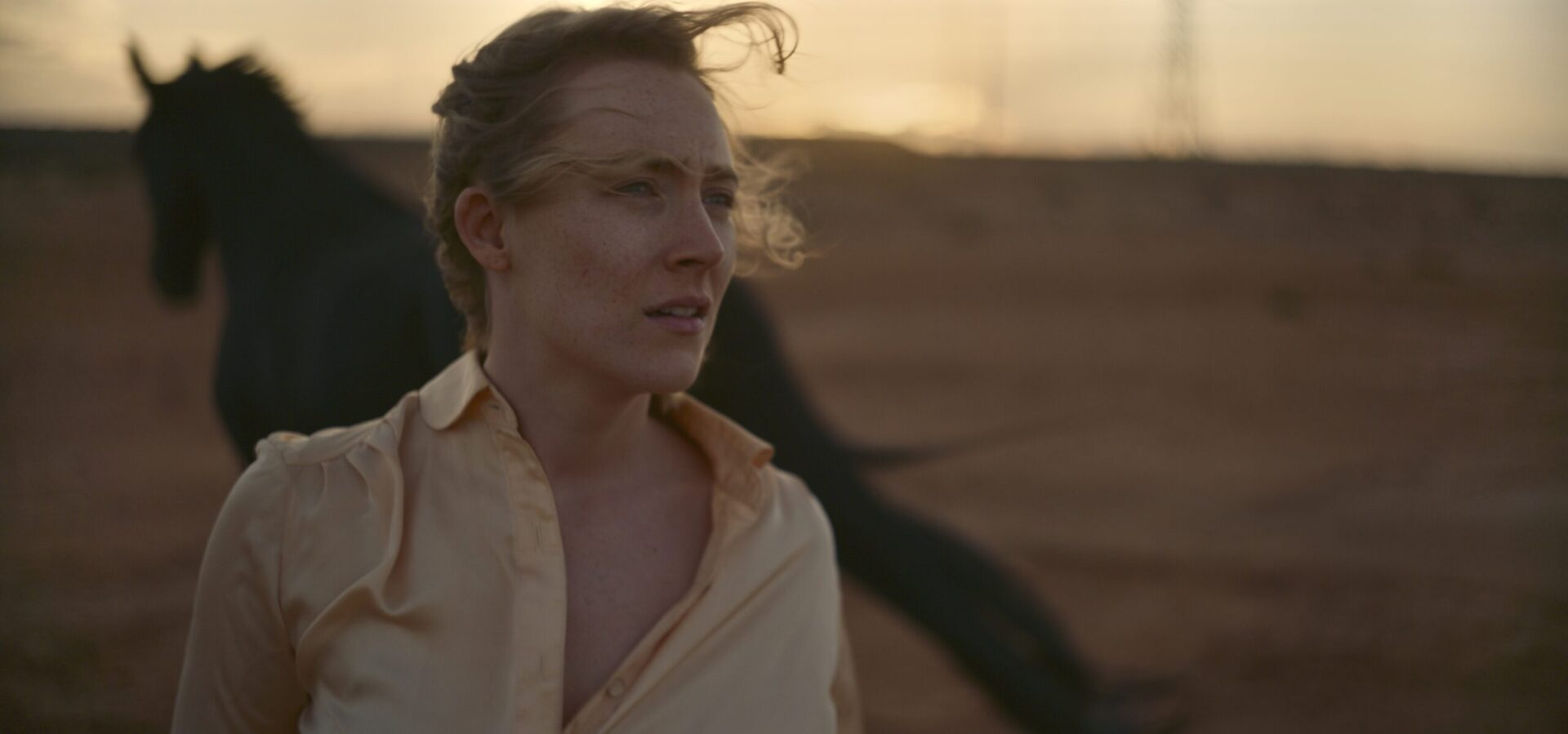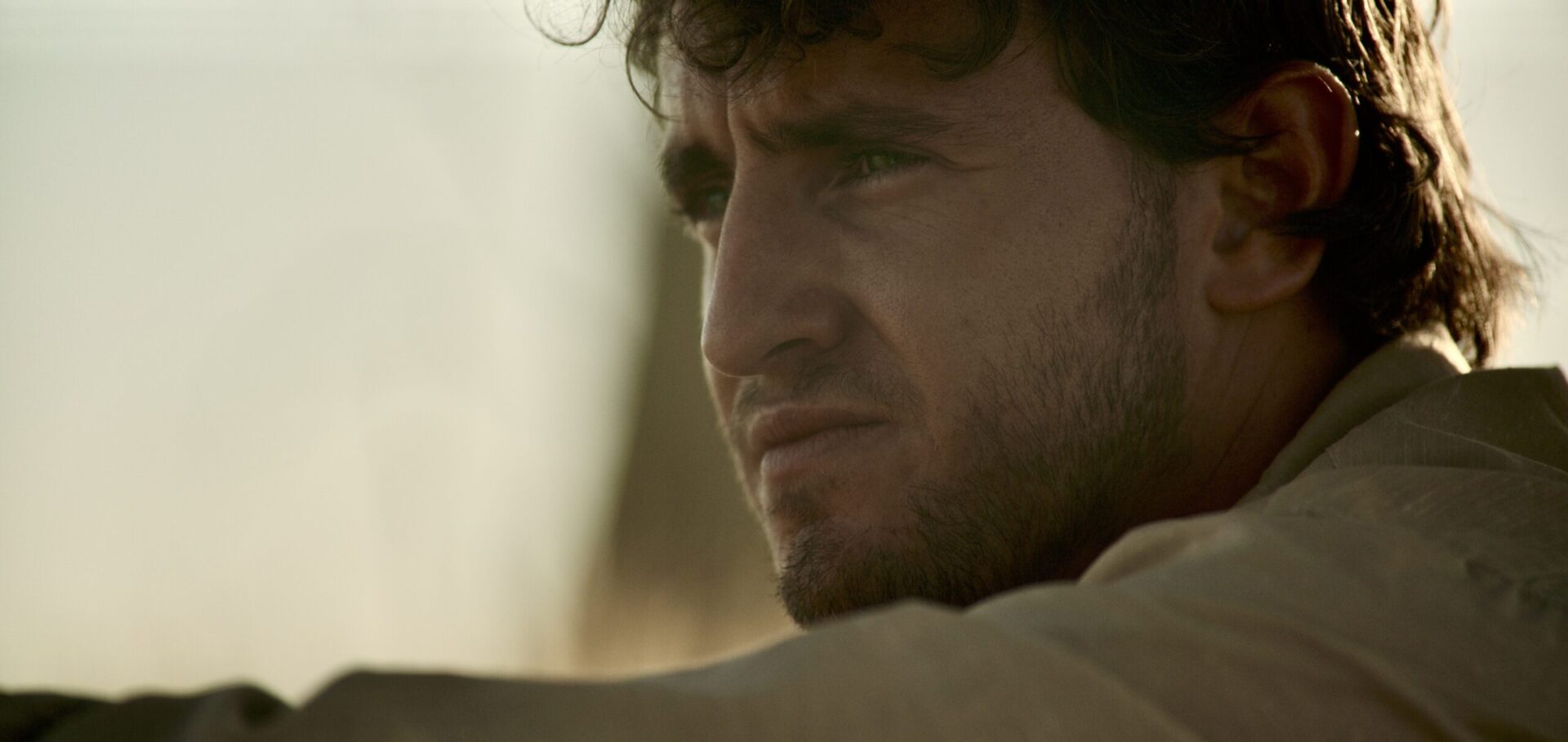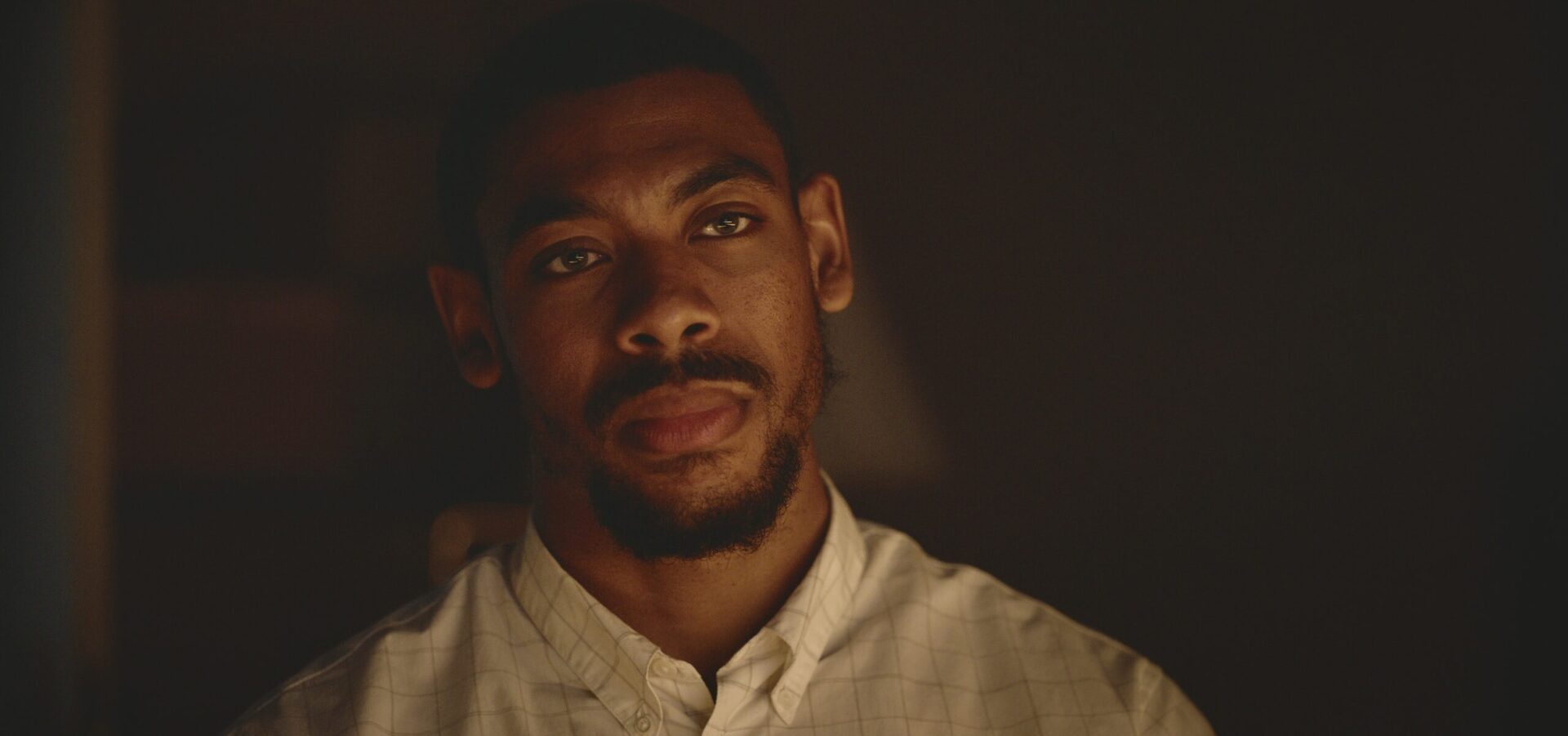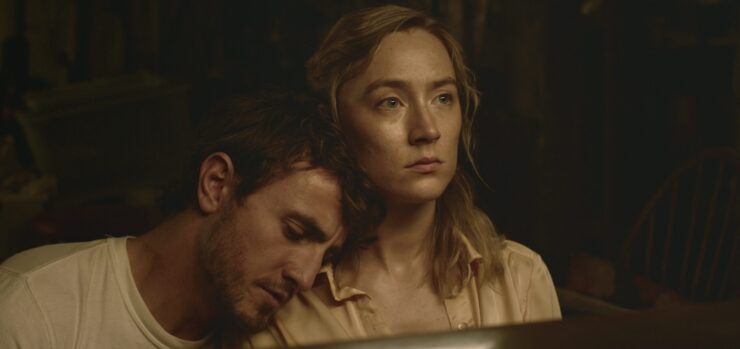Based on the 2018 novel by Iain Reid (who co-wrote the script with director Garth Davis), Foe has what appears to be, on paper, a winning formula. It gives Saoirse Ronan and Paul Mescal, two of this generation’s great actors (and donning American accents), meaty roles and the chance to face off on the screen. It’s rich with dramatic tension, moral quandaries, and a lush visual flair as Mátyás Erdély’s cinematography simultaneously feels grand and claustrophobic in its scale.
But for all that it’s going for it, those pieces don’t come together to create a cohesive puzzle. Despite solid performances from Ronan and Mescal, they can’t save a weak (and sometimes cheesy) script that sometimes feels like a rejected Black Mirror episode and is more in service to its twists and turns than its characters.
Foe’s near-futuristic setting is close enough to our own to see the connective tissue between now and then but is still far enough away to feel abstract. It’s set in a nondescript “Midwest, 2065,” a dystopian future where water and workable land are limited resources; Earth has become an increasingly hostile place to live. Erdély’s camerawork captures the beauty of quieter moments between the married couple Junior (Mescal) and Hen (Ronan), taking full advantage of their isolation or the destruction that a fire or tornadoes might bring to an area devastated by drought with no end in sight. Australia, standing in for the Midwest, is breathtaking on the screen, and at times, Foe can come off feeling like a period piece instead of a drama set decades in the future.

But those sci-fi elements occasionally creep in. There are futuristic cars, a concerted effort by a corporation called OuterMore to build and sustain an entire planet within the confines of a space station, and “human substitutes”—artificial intelligence that essentially works like a clone in practice and can, in certain circumstances, step in to replace a person—exist.
For a good part of Foe, those elements are in the background, with much of its setting, scope, and human drama taking center stage. Junior and Hen’s marriage has already seen better days by the time Terrance (The Underground Railroad’s Aaron Pierre) arrives on their doorstep. Terrance works for OuterMore, one of the corporations that more or less stands in for the U.S. government these days, and Junior is on the shortlist to head into space for two years to help build the space station designated to save humanity. It doesn’t matter that Junior, whose family lived in the farmhouse he and Hen call home for several generations, never signed up for a lottery to work on the space station and has no interest in going to space.
Pierre brings a casual coolness to Terrance that can make him appear friendly one moment and menacing the next, a sign of the chameleonic whims of all three characters to come: Once Junior says he doesn’t want to go to space (especially when he learns Hen can’t go with him), what seems to be an invitation turns into a threat as Terrance notes that the invite is more like conscription (a compulsory military draft).
But OuterMore isn’t entirely without sympathy for what its plans for Junior will do to Hen. To make up for it, it will provide Hen with a Junior human substitute so she won’t be alone during her husband’s time away. To do so, Terrance will move into their home, run a series of tests on Junior, and observe the couple to gather enough data to ensure the human substitute is as close a mirror of Junior as humanly possible. For Hen, it will almost be as if her husband never left.

The semantics of the mission involved—we’re given limited details about what OuterMore wants to do and even fewer scenes showing what that entails—matter much less than what their introduction means to Junior and Hen. But the constant push and pull as each party tries to get the upper hand in this new, confounding triad is jarring as interactions and motivations between characters change with almost no throughline.
One minute, Junior and Terrance are getting along like long-lost buddies as Hen is shut out. The next minute, Hen is cozying up to the person who changed their home dynamic, while Junior is on the outskirts, left to spy through a hole in the bathroom wall. In one scene, Junior and Hen can’t keep their hands off each other; the next, they’re almost at each other’s throats. They’re each asked intimate details about their personal lives and grievances with each other; Junior, for instance, can’t stand Hen playing the piano, so the piano sits in the basement collecting dust. At one point, Hen describes her fantasy of finally leaving Junior while Junior rants about how much he can’t stand the way people chew their food.
Looming in the back of your mind is the shadow of something that’s just a little off that might make Foe more rewarding on a rewatch but lose some of the intended emotional weight in the process. The constant bait and switch makes it harder to grasp their motivation at any given moment. Is Terrance trying to help Hen and Junior, or is he driving them further apart? Does he want to encroach himself into their lives or leave behind the kind of disaster that is all too common in their corner of the world? Is he actually interested in one of them, intent on pushing the other out? After a while, it feels less like keeping the audience guessing and more like the writers don’t even truly know which direction he lands.

Ronan and Mescal make the best of what they’re given, and Pierre seems to be having fun playing the proverbial wrecking ball in a marriage already on the downturn. But the zig-zagging of Foe’s attempted highwire act is more in service to the plot than the characters.
Aiming to use sci-fi to heighten the human drama at its core, Foe stumbles at nearly every turn, choosing obvious ways of exploring the kinds of concepts already covered in numerous (and far better) films and shows before. The result is mostly forgettable: It isn’t as interesting as it thinks, nor does it pack as much of an emotional punch, but at least it looks nice.
Foe is now in select theaters and will arrive on Prime Video at a later date.
Michelle Jaworski is an entertainment journalist and a film and TV critic who lives in Brooklyn. You can find her on Twitter and Bluesky.










